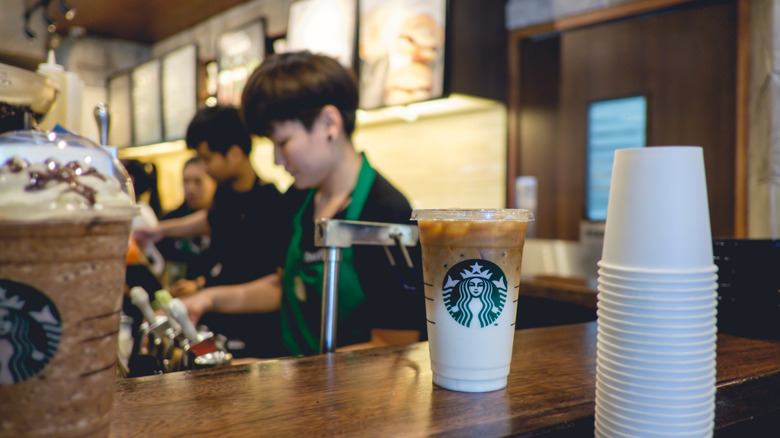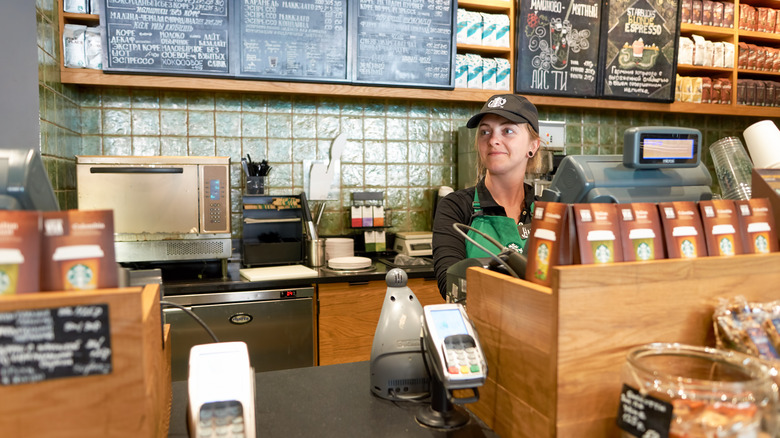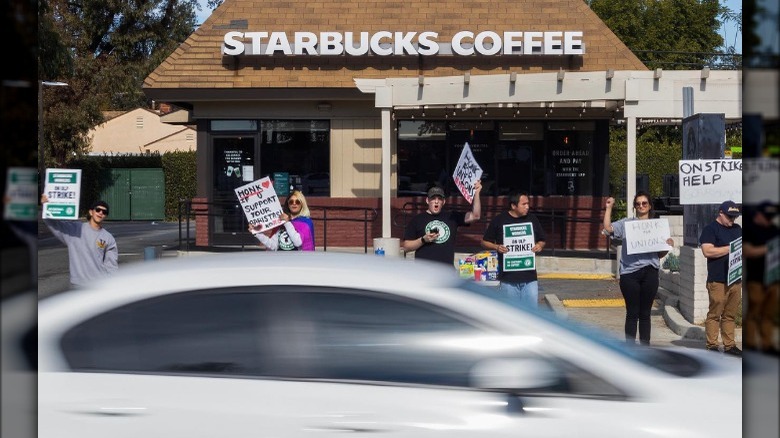Why Starbucks Employees Technically Aren't 'Baristas'
How would you describe a run-of-the-mill trip to your local Starbucks? For most of the coffee giant's frequent customers, the answer goes something like this. You wait in a moderate but fast-moving line, rapid-fire recite your very specific beverage order at the counter (say, a Grande Iced Caffè Latte with almond milk?), and — after waiting off to the side while people-watching or scrolling on your device for five minutes — perk up with delight as that darling barista calls out your name, indicating that your liquid gold is ready for you to grab from the counter and enjoy.
Everything about this Starbucks experience may seem accurate (even if that Iced Caffè Latte isn't your usual drink of choice). However, as revealed by one self-identified Starbucks employee, another detail of that description would need to be tweaked. And it will probably come as a surprise to even the most loyal Starbucks stans.
Business beyond beverage-making
Those hardworking baristas who prepare your daily Starbucks orders aren't actually "baristas" — at least, not in Starbucks' eyes. Instead, Starbucks refers to all of its employees as "partners" in the company.
According to AJ, a self-identified Starbucks partner in Florida, Starbucks bestows this unusual title upon its employees to reflect their financial equity in the company. "A year into our employment, we get a small percentage in the company, so we're all stock partners," AJ said to Mental Floss in 2019.
Not only does this term represent the employees' literal financial partnership with their employer, but it's also meant to promote a culture of mutual regard between the two parties. On top of that, by esteeming its employees as partners, Starbucks instills in them a sense of emotional ownership and dedication to the excellence of the company, from product quality to customer service and everything in between.
A stretch of the truth?
The Starbucks website proudly declares that the company is "committed to making our partners proud and investing in their health, well-being, and success and to creating a culture of belonging where everyone is welcome."
In reality, though, Starbucks isn't the gold standard for employee treatment. In November of 2022, more than 2,000 Starbucks employees went on strike in an effort to unionize, bringing the company's employment policies and practices to public attention. Starbucks' management allegedly responded with union-busting efforts that were less than savory (and less than legal), including allegedly firing union leaders. Though the National Labor Relations Board has called out the company's behavior, the path to progress for employees is an ongoing endeavor. Despite their "partner" label, employees emphasized that respect and esteem from their employer should be reflected in the form of fair pay, predictable work schedules, and other basic protections.
Whether Starbucks' unconventional "partner" title is performative or sincere, it's another way the chain sets itself apart.


